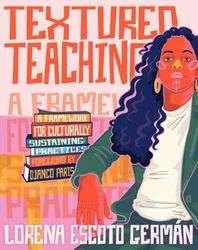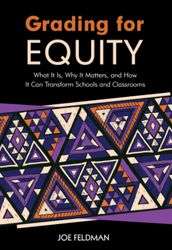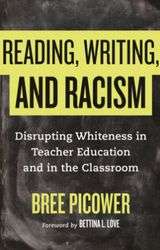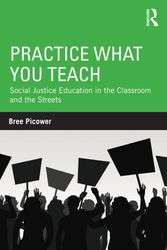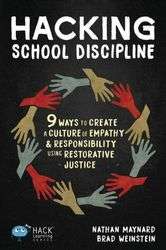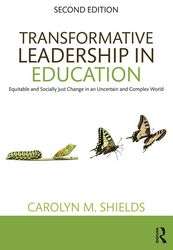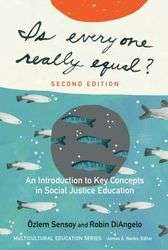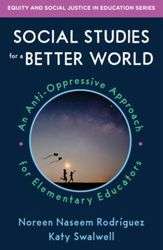8 Best Books on Promoting Social Justice in Education
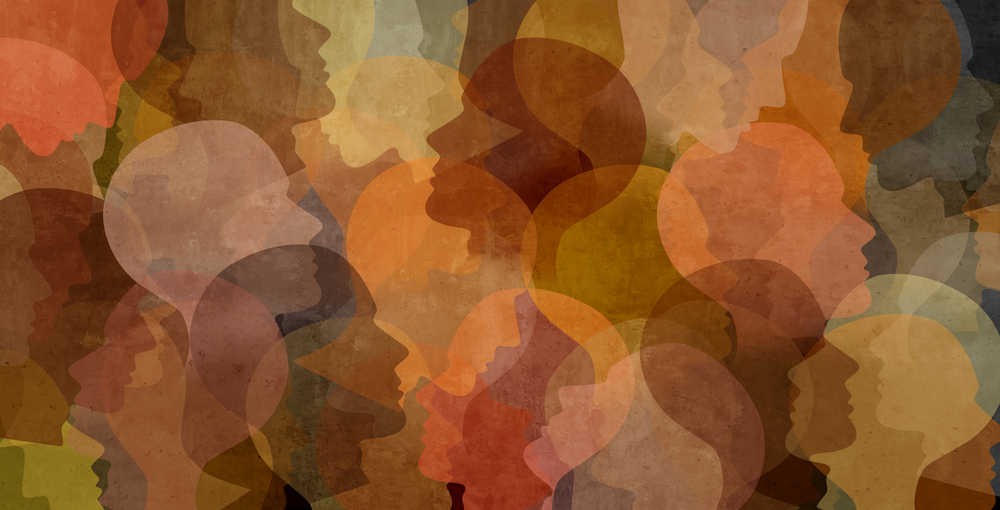
Social justice in education matters. Social justice refers to equal access to opportunities—including wealth, privileges and professions—for all members of society. Teaching for diversity and social justice means granting every student a quality education, encouraging social wellbeing and teaching with honesty and transparency about historical and present social justice issues.
Educators, school boards and faculty need to familiarize themselves with teaching within a social justice framework. Pursuing a Doctor of Education (EdD) in Educational Leadership and Organizational Innovation equips you with actionable solutions to address real-world challenges in today’s education system.
Another tool that helps teachers gain new strategies for teaching diversity and social justice is educational books. Discover a few of the best books on education that empower teachers to incorporate diversity, equity and inclusion (DEI) and social justice into their curriculum.
Complete The Form to Access Your Online Ed.D. Program Guide
Why Social Justice Matters in Your Teaching and Curriculum
In 2019, a fifth-grade teacher was accused of carrying out a mock slave auction in which white students bid on black students in New York. School assignments such as this one exploit, humiliate and traumatize students. Although this is an extreme example, even something as subtle as vocabulary in the classroom can influence how a student perceives themselves and the world around them.
In another example, a Sacramento High School teacher made an offensive gesture during a Zoom class when she pulled her eyes to the side in an attempt to imitate those of Asian descent. This type of transgression is known as a microaggression: “a comment or action that subtly and often unconsciously or unintentionally expresses a prejudiced attitude toward a member of a marginalized group.” Although the teacher claims she intended no offense, the offensive action was, nevertheless, ignorant and harmful.
Educating teachers about social justice in schools can help prevent harmful teaching practices and protect and empower students. As leaders of the next generation of learners, teachers must be advocates for social justice in schools.
Statistics About Social Justice in Education
School funding, teacher representation and teacher quality all influence and impact student achievement and outcomes. The following statistics demonstrate the current state of social justice in education:
- The U.S. ranks 23rd in high school graduation rate among rich nations of the world. In 1970, the U.S. was first.
- A student living in poverty is 13 times less likely to graduate on time.
- Nearly 60% of student dropouts will go to prison at some point in their lives.
- 75% of Americans ages 17-24 are not qualified for military service because they are overweight, too poorly educated, have emotional problems or have a criminal record.
- The unemployment rate for college-educated black individuals is twice that of white individuals.
- Nationwide, districts with the most minority students receive 15% less per student in state and local funding than the whitest districts.
- Exposure to at least one black teacher in Grades 3-5 reduces the probability of low-income black male students dropping out of school by almost 40%.
Teachers must be passionate about bettering the lives of their students and providing equal opportunity to diverse classrooms. As a teacher, social justice books are an accessible way to educate yourself, amend your vocabulary and communication style and try new teaching strategies based on the latest advice from educational experts.
8 Best Books on Promoting Social Justice in Education
Teachers interested in promoting social justice in schools can use books on education to stay informed and learn from diverse authors about subjects like grading for equity, anti-oppressive school discipline, equality in the classroom and more. We gathered eight of the best social justice books for teachers to add to their library.
1. ‘Textured Teaching: A Framework for Culturally Sustaining Practices’ by Lorena German
Lorena German, a Dominican-American educator, focuses on anti-racist and anti-bias work in education. In her book, Textured Teaching: A Framework for Culturally Sustaining Practices, she breaks down teaching formulas through a social justice lens. The book offers actionable strategies that teachers can incorporate into their classrooms. The framework is founded on a student-driven, community-centered, interdisciplinary, experiential and flexible approach to education.
2. ‘Grading for Equity: What It Is, Why It Matters and How It Can Transform Schools and Classrooms’ by Joe Feldman
Grading is a critical indicator of student outcomes and a vital determinant for future opportunities in higher education, the workforce and economic advancement. Joe Feldman’s book Grading for Equity: What It Is, Why It Matters and How It Can Transform Schools and Classrooms promotes new grading practices that encourage “revision and redemption instead of compliance and corruption.” Joe Feldman began his career as a high school English and American History teacher. He now works with school districts and teachers to improve equitable grading and enhance transparency and honesty with students.
3. ‘Reading, Writing and Racism: Disrupting Whiteness in Teacher Education and in the Classroom’ by Bree Picower
Bree Picower is a professor and scholar-activist. In her book Reading, Writing and Racism: Disrupting Whiteness in Teacher Education and in the Classroom, Picower explains how white supremacy is ever-present in school curriculums and empowers white teachers to advance their understanding of racial justice to change the way they think and teach about race in the classroom. The book is honest and reflective, and seeks to dismantle racism in education through personal responsibility. Teachers should expect to take a hard look at their current practices and identify potentially harmful practices that must be rethought.
4. ‘Practice What You Teach: Social Justice Education in the Classroom and the Streets’ by Bree Picower
Bree Picower earns another place on the list for her book, Practice What You Teach: Social Justice Education in the Classroom and the Streets. In this practical and provocative book, Picower addresses the challenges teachers will inevitably face as social justice advocates and activists in various stages of their teaching careers. She explores specific strategies, the danger of inactions, reconciliation and how to make a difference in the classroom and “organizing in the streets.” It’s an excellent resource for teachers who want to develop into inspiring leaders.
5. ‘Hacking School Discipline: 9 Ways to Create a Culture of Empathy and Responsibility Using Restorative Justice’ by Nathan Maynard and Brad Weinstein
Discipline is complex and can be used to harm or help student outcomes. In the book Hacking School Discipline: 9 Ways to Create a Culture of Empathy and Responsibility Using Restorative Justice, authors Nathan Maynard and Brad Weinstein develop a blueprint for teachers and educational leaders to eliminate punishment and oppression in schools, and instead, encourage independent learning. Maynard and Weinstein believe that if leaders can build a culture of accountability, self-responsibility and autonomy, they can teach students to navigate classrooms without damaging disciplinary practices.
6. ‘Transformative Leadership in Education: Equitable and Socially Just Change in an Uncertain and Complex World’ by Carolyn M. Shields
There’s no doubt that the world is complex and ever-changing. Educational models and classrooms are changing alongside global influences like the waves of the pandemic, digital acceleration and social justice movements. Carolyn M. Shields’ book Transformative Leadership in Education: Equitable and Socially Just Change in an Uncertain and Complex World acknowledges ambiguity in education and uses contemporary research to explore leadership and social justice. Shields believes that teachers can lead in ways that promote an academically excellent, equitable, inclusive and socially-just education for all students. The book also touches on the value of self-reflection, grounding and spiritual connection in transformational leadership.
7. ‘Is Everyone Really Equal?: An Introduction to Key Concepts in Social Justice Education’ by Robin Diangelo and Özlem Sensoy
Robin Diangelo is a lecturer in the School of Social Work, and Özlem Sensoy is a professor focused on gender, sexuality and women’s studies. In the book Is Everyone Really Equal?: An Introduction to Key Concepts in Social Justice Education, Diangelo and Sensoy present a world-winning guide to social justice in education, focusing on intersectionality, classism, contemporary activism (Black Lives Matter, Occupy and Idle No More) and colonialism. In addition, the book offers teachers an extensive vocabulary, discussion questions and tools to conduct a workshop, class or study group.
8. ‘Social Studies for a Better World: An Anti-Oppressive Approach for Elementary Educators (Equity and Social Justice in Education)’ by Noreen Naseem Rodriguez and Katy Swalwell
Noreen Naseem Rodriguez and Katy Swalwell recognize that young learners in today’s geopolitical landscape are exposed to complex issues every day and need tools to cope. Their book Social Studies for a Better World: An Anti-Oppressive Approach for Elementary Educators touches on systemic racism, pressing environmental concerns, deep political divisions and how current and future pandemics influence health equity. This book is an inspiring map to building a better future for all. It helps teachers start a conversation about how students can impact the world and promote equity and social justice in their careers and lives.
Create real change with a Doctor of Education (Ed.D.)
Transform as a leader and social justice advocate who inspires change across diverse settings with Marymount University’s online Ed.D. in Educational Leadership and Organizational Innovation. Aligned with best practices and insights from influential thought leaders, our Ed.D. prepares you to educate within a social justice framework and contribute to greater outcomes in schools, communities, government, health care and public and private organizations.
This highly-personalized online program can help you identify a relevant issue impacting your school district, classroom and students and create innovative solutions through research, theory and practice. If you want to position yourself to make a meaningful impact in your field and lead into the future—the Marymount online Ed.D. in Educational Leadership and Organizational Innovation could be right for you.
Why Marymount?
Our fully online and accredited Ed.D. is distinguished as a member of the Carnegie Project on the Education Doctorate (CPED), giving you convenient access to quality and practical coursework that can advance your career without putting it on hold.
The online Ed.D. in Educational Leadership and Organizational Innovation is:
- Accelerated: New cohorts begin each fall and spring. It is possible to complete 48 credit hours needed to graduate in less than three years (8 consecutive semesters).
- Renowned: Marymount is nationally recognized as a College of Distinction for Education and Business, where students are encouraged to “Learn with Purpose.”
- Connected: Build connections with innovative, experienced and supportive educators in the nation’s capital, home to the most educated workforce in the country.*
For those looking to become education leaders and promote social justice, consider Marymount’s Ed.D. in Educational Leadership and Organizational Innovation.

